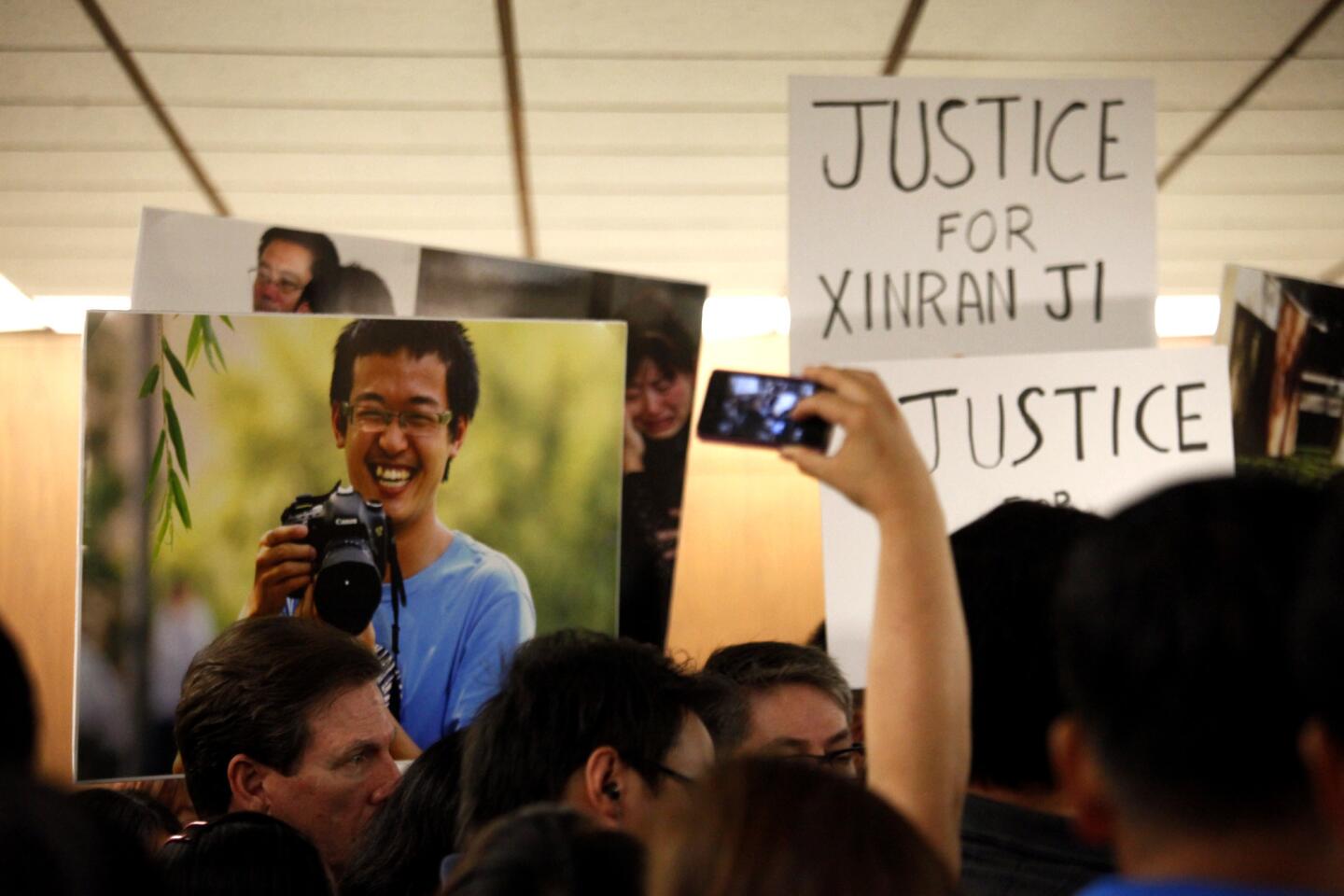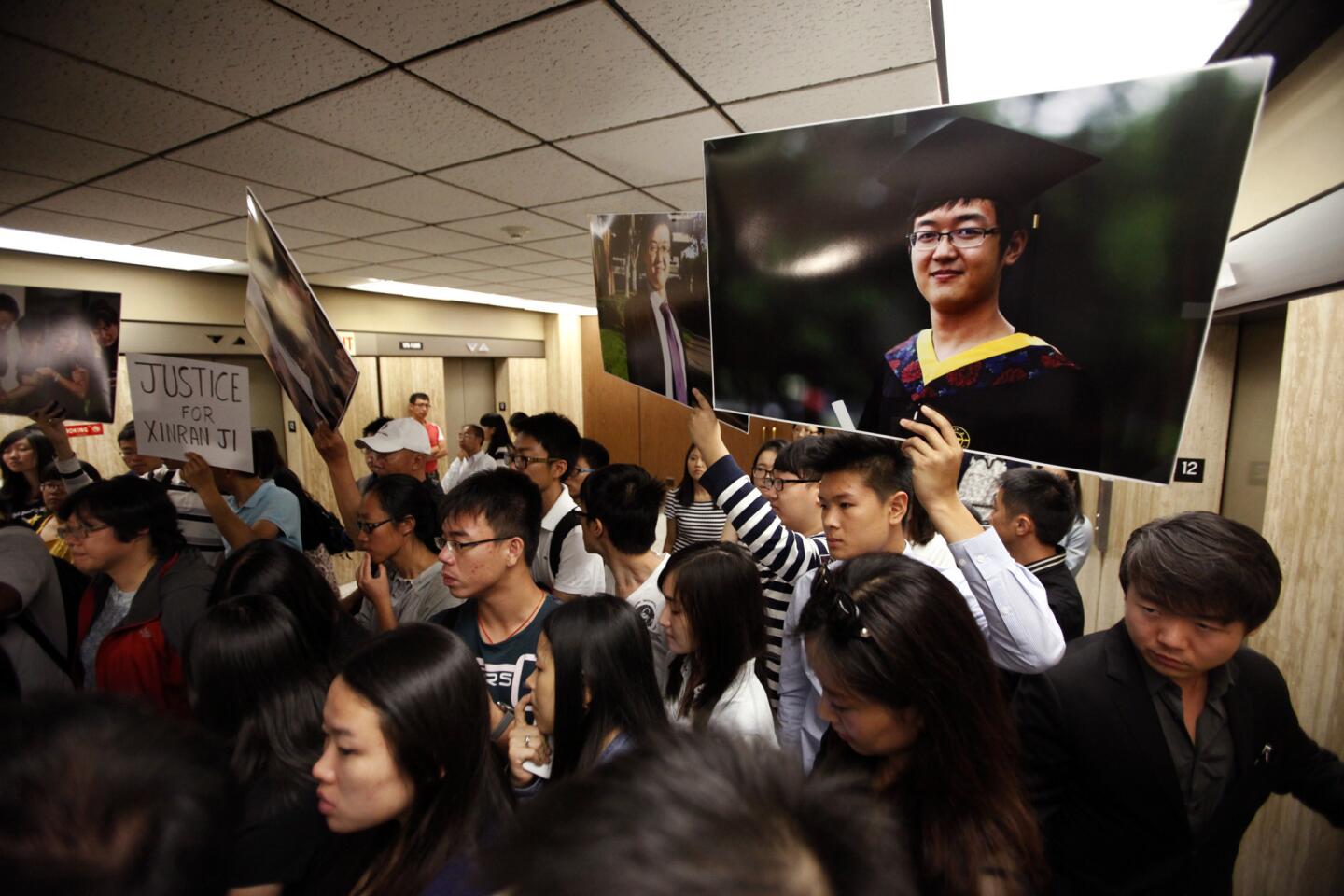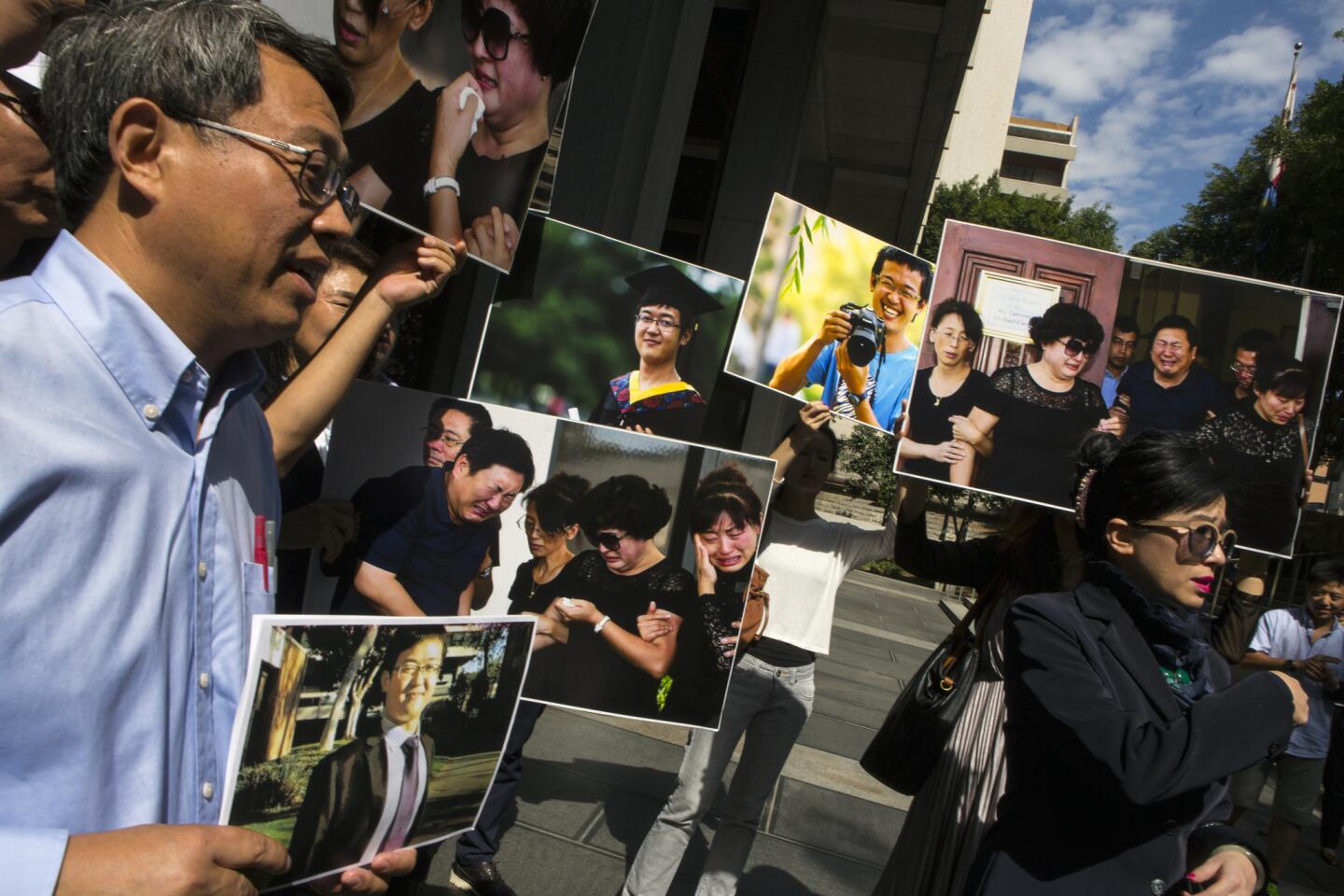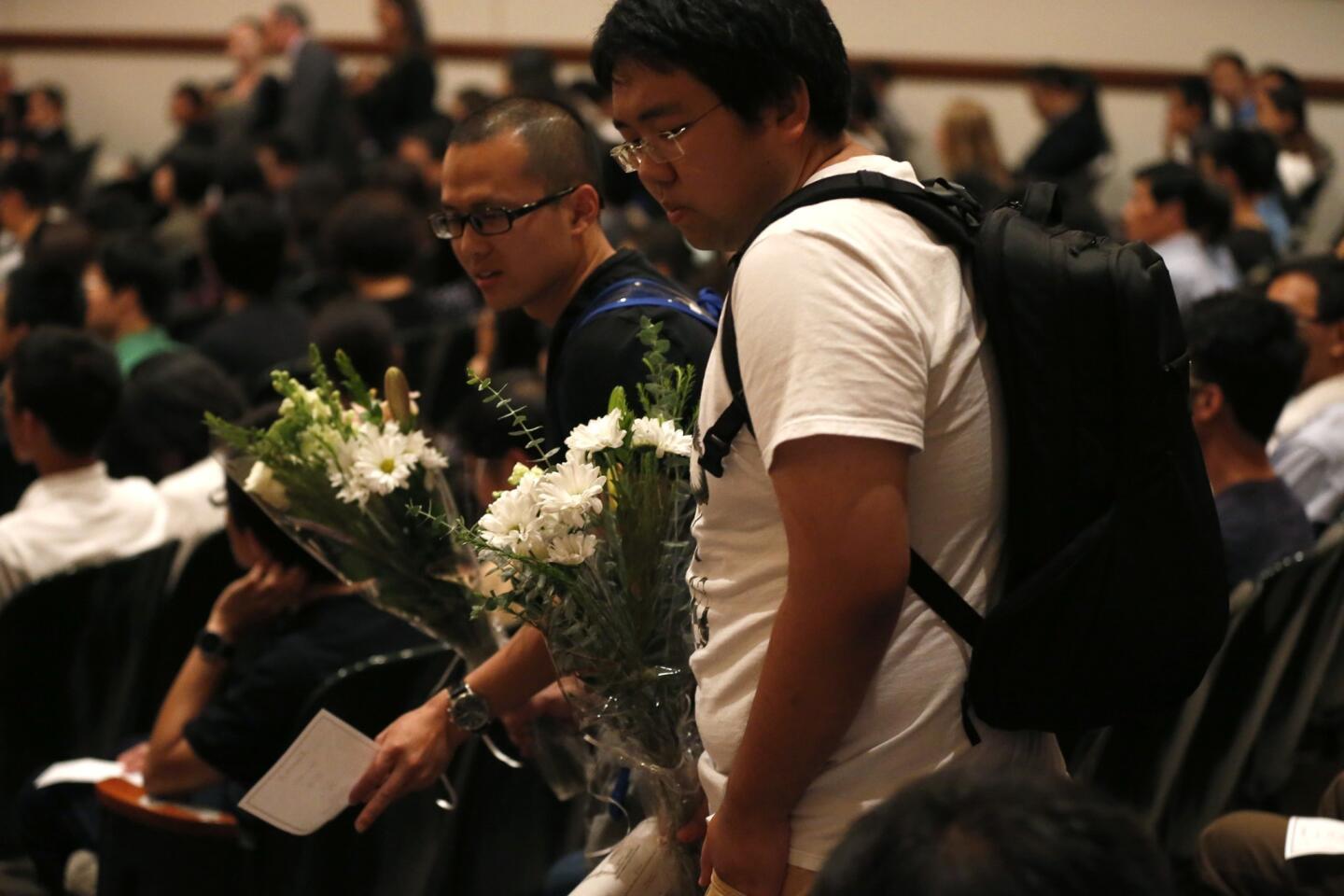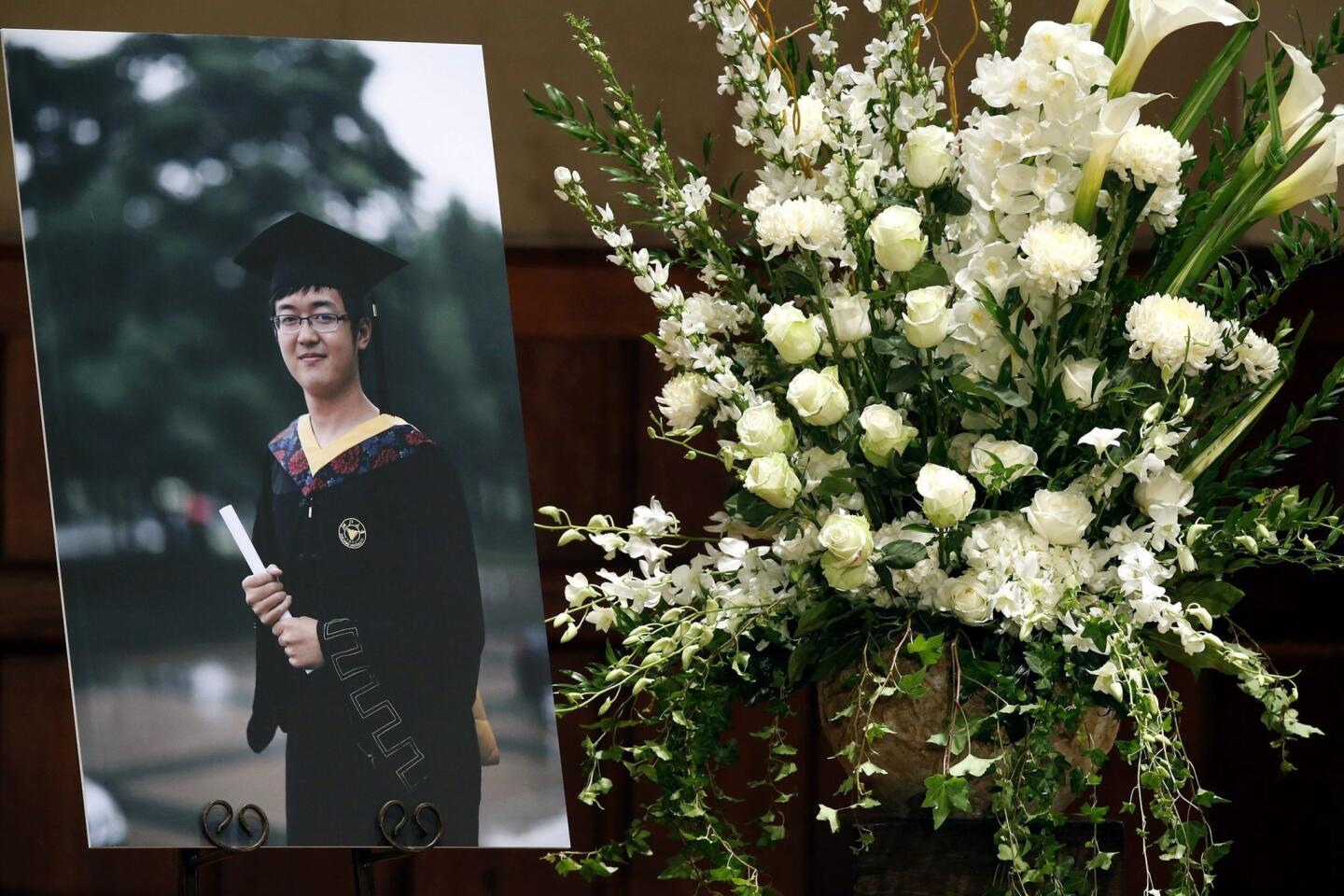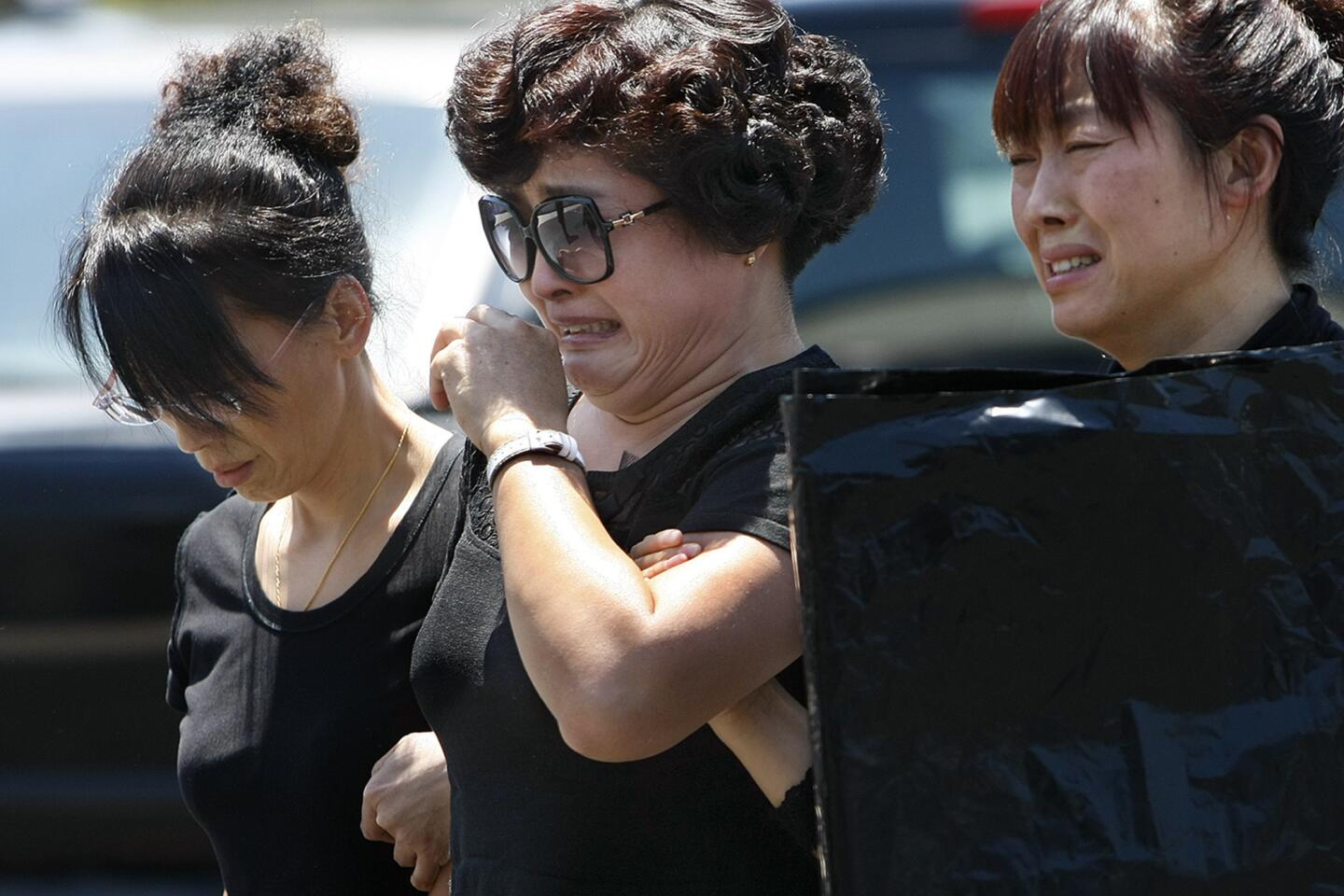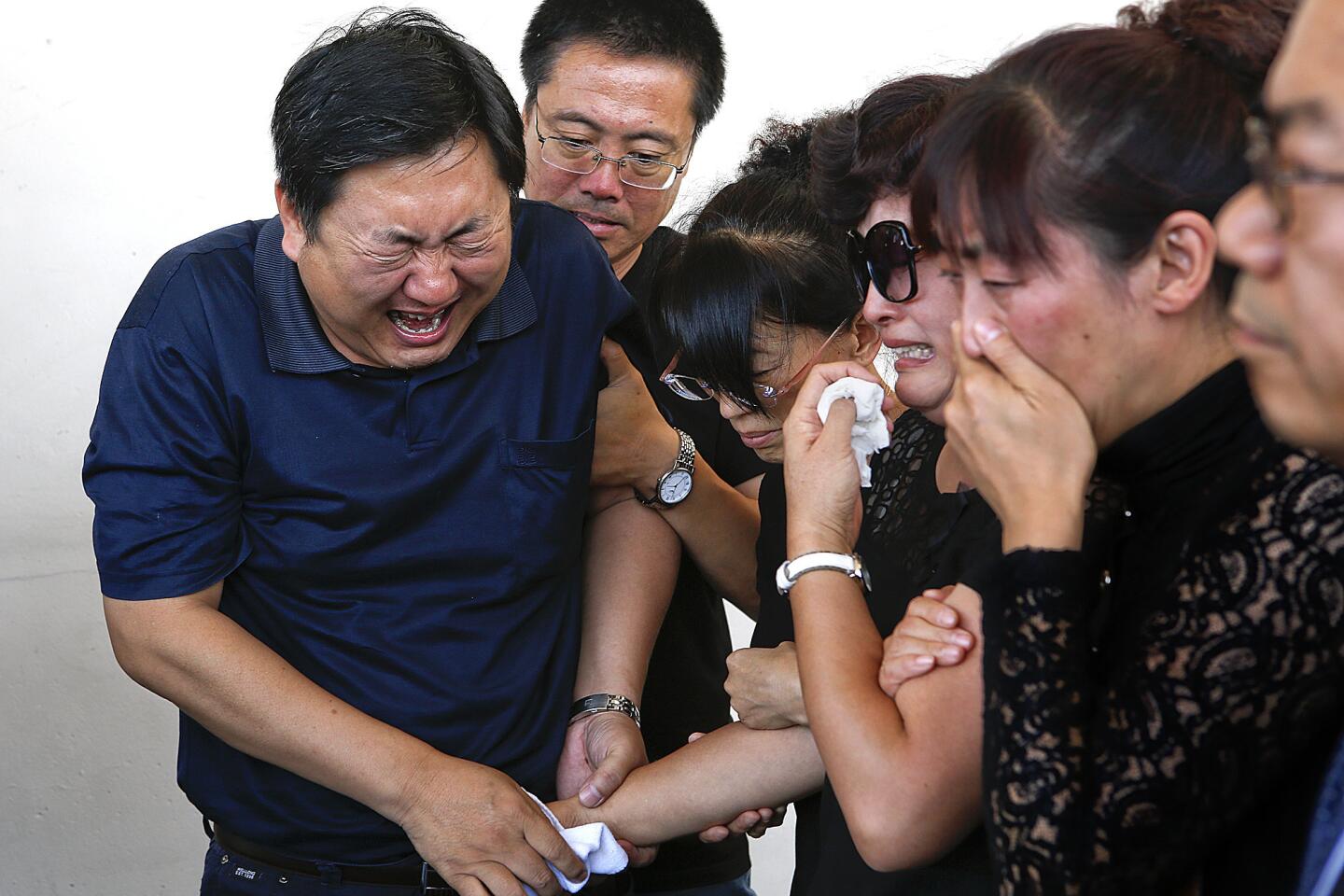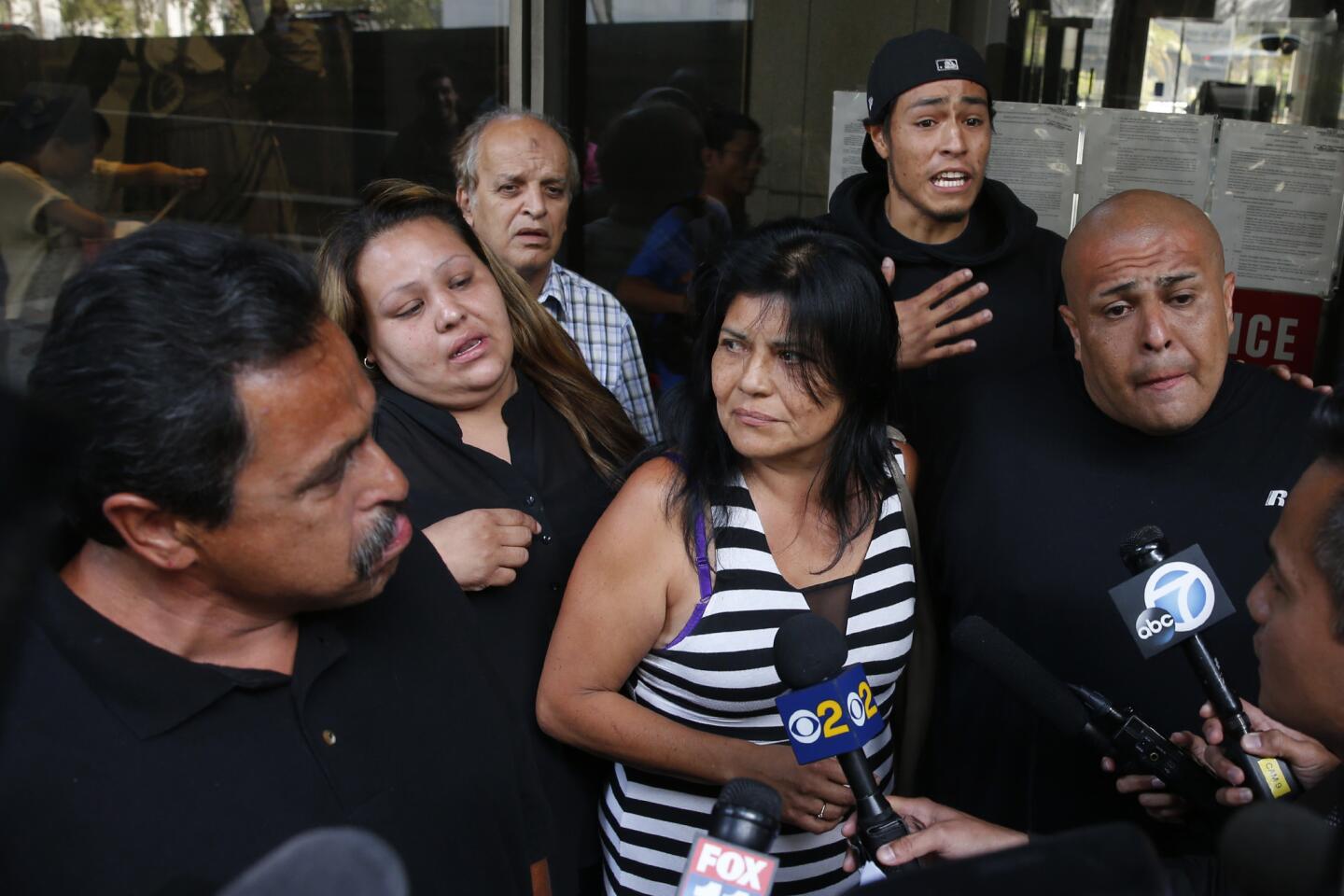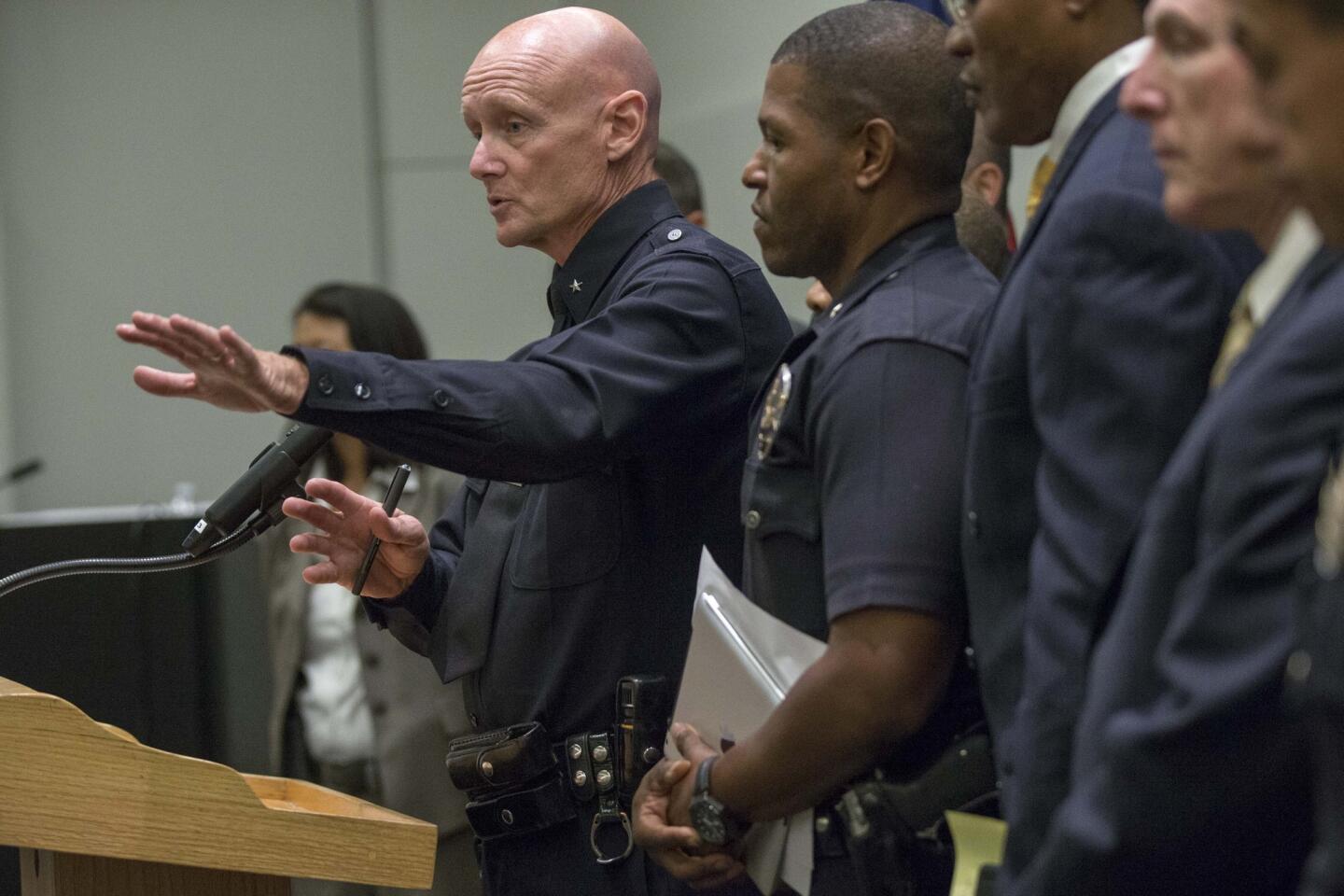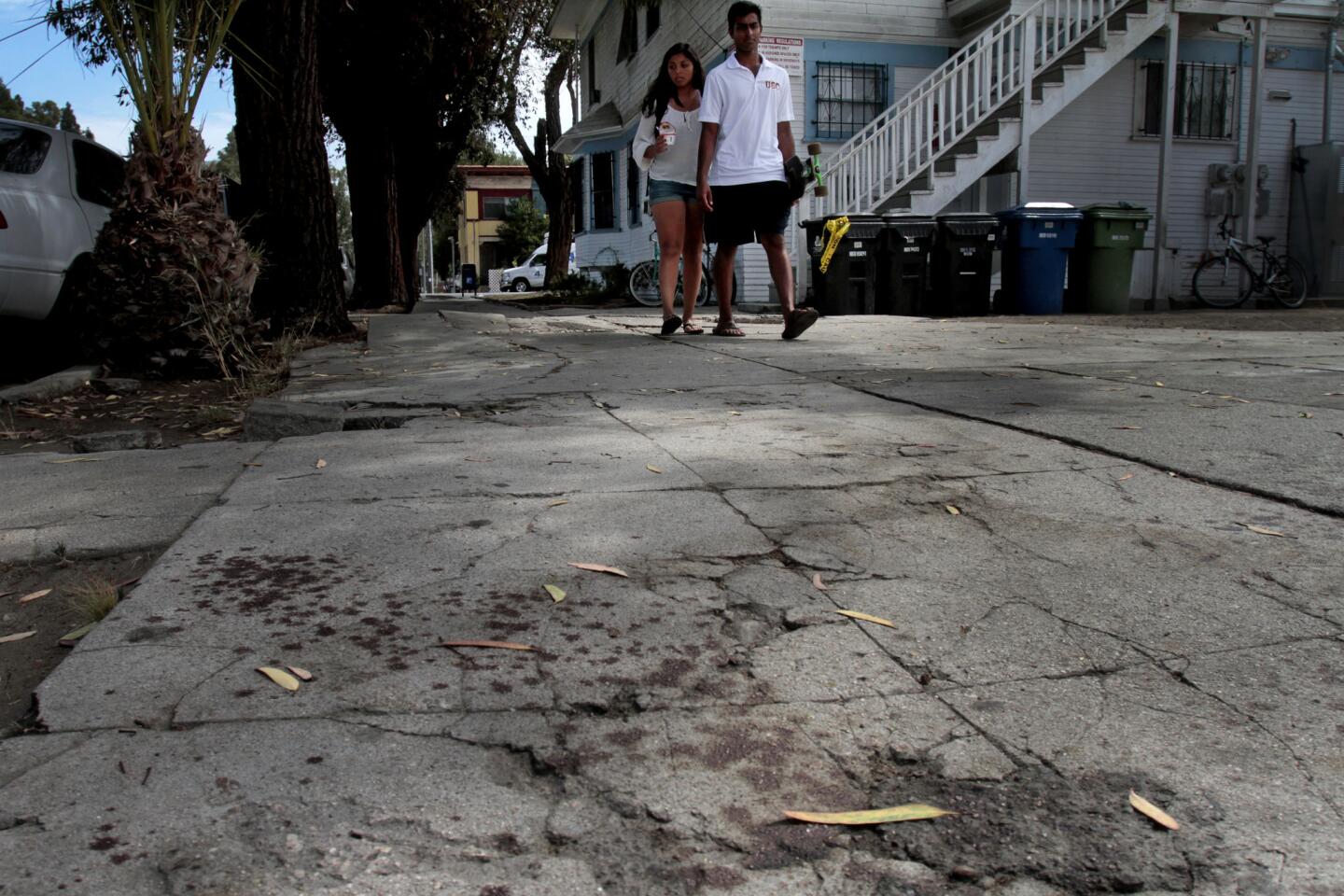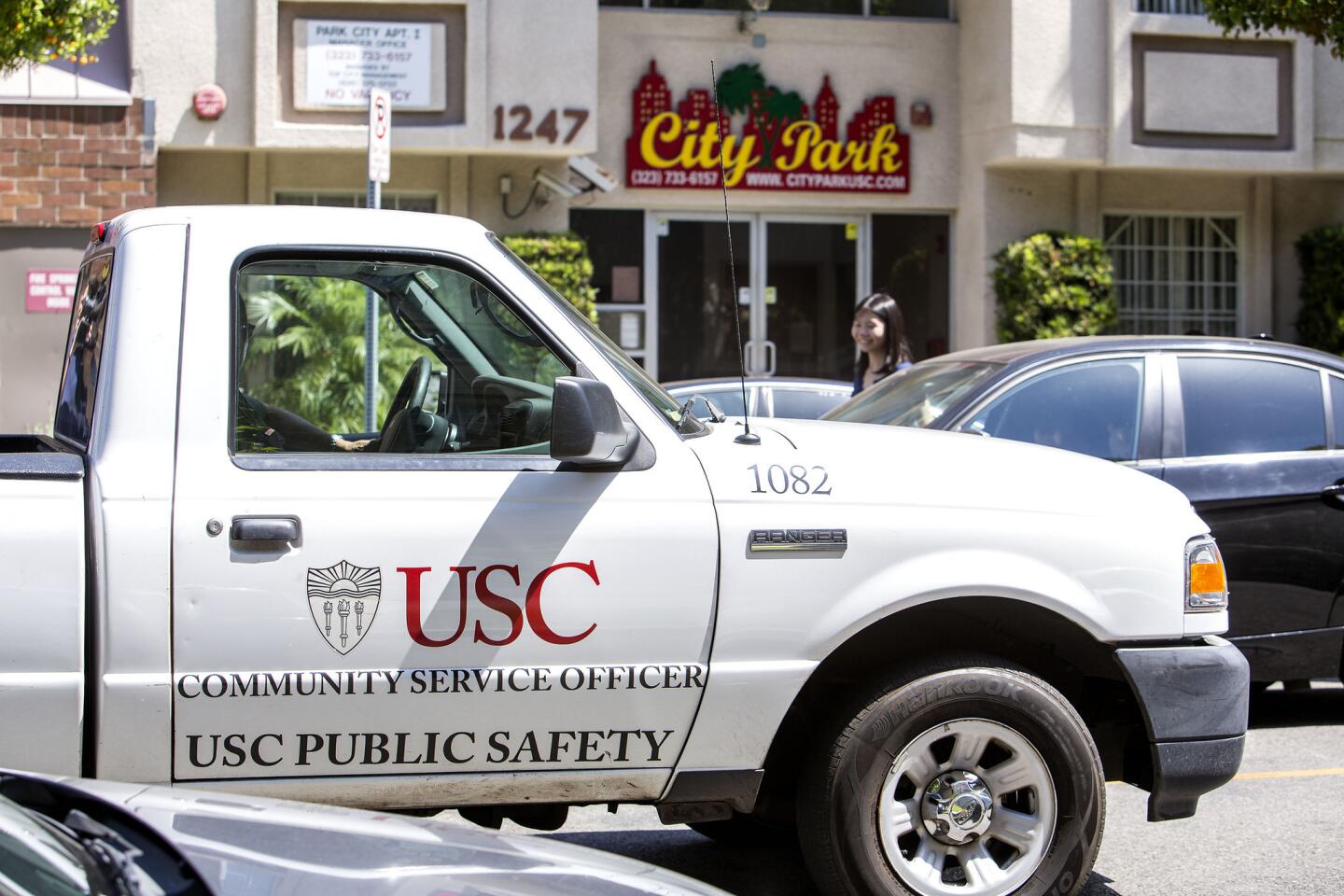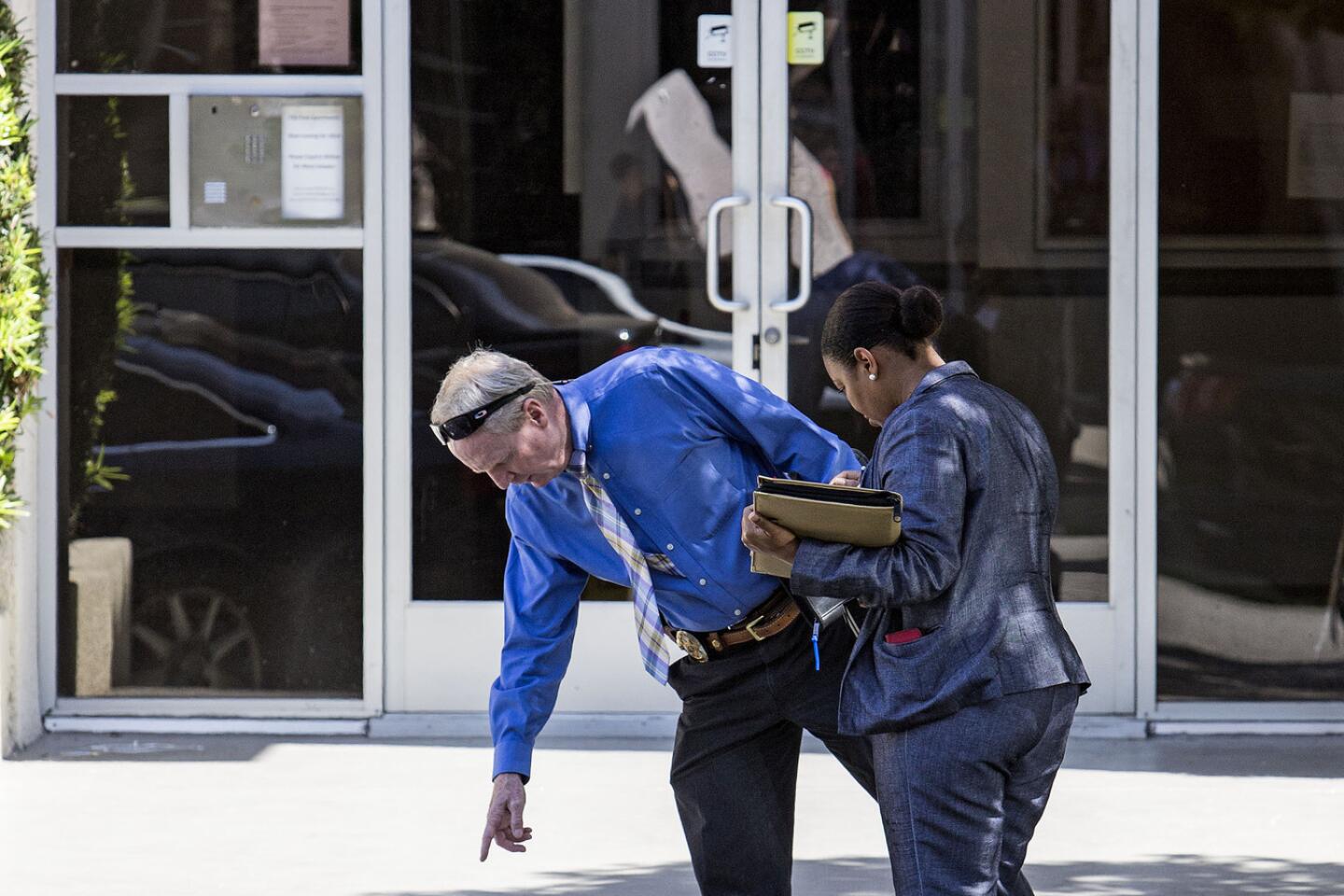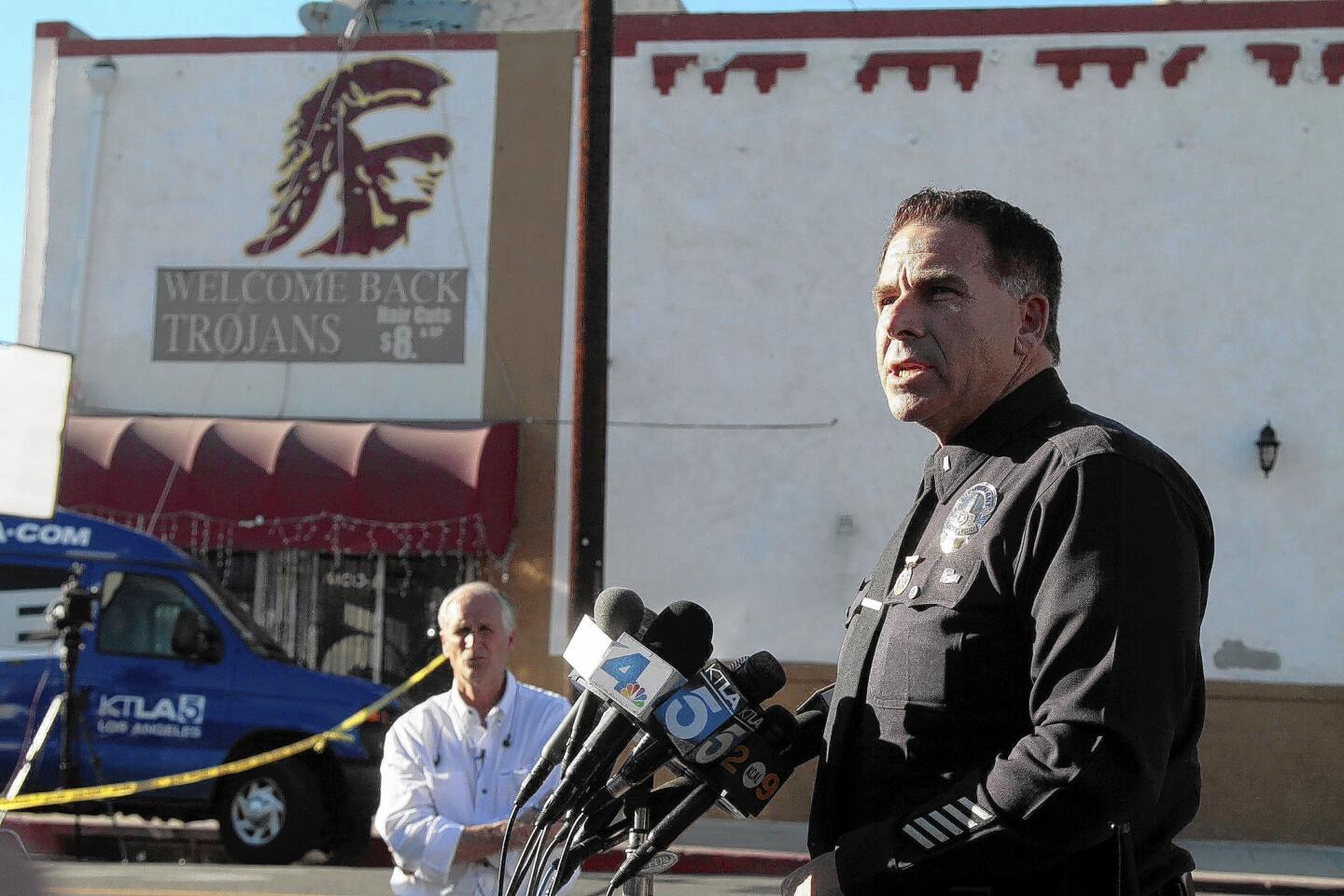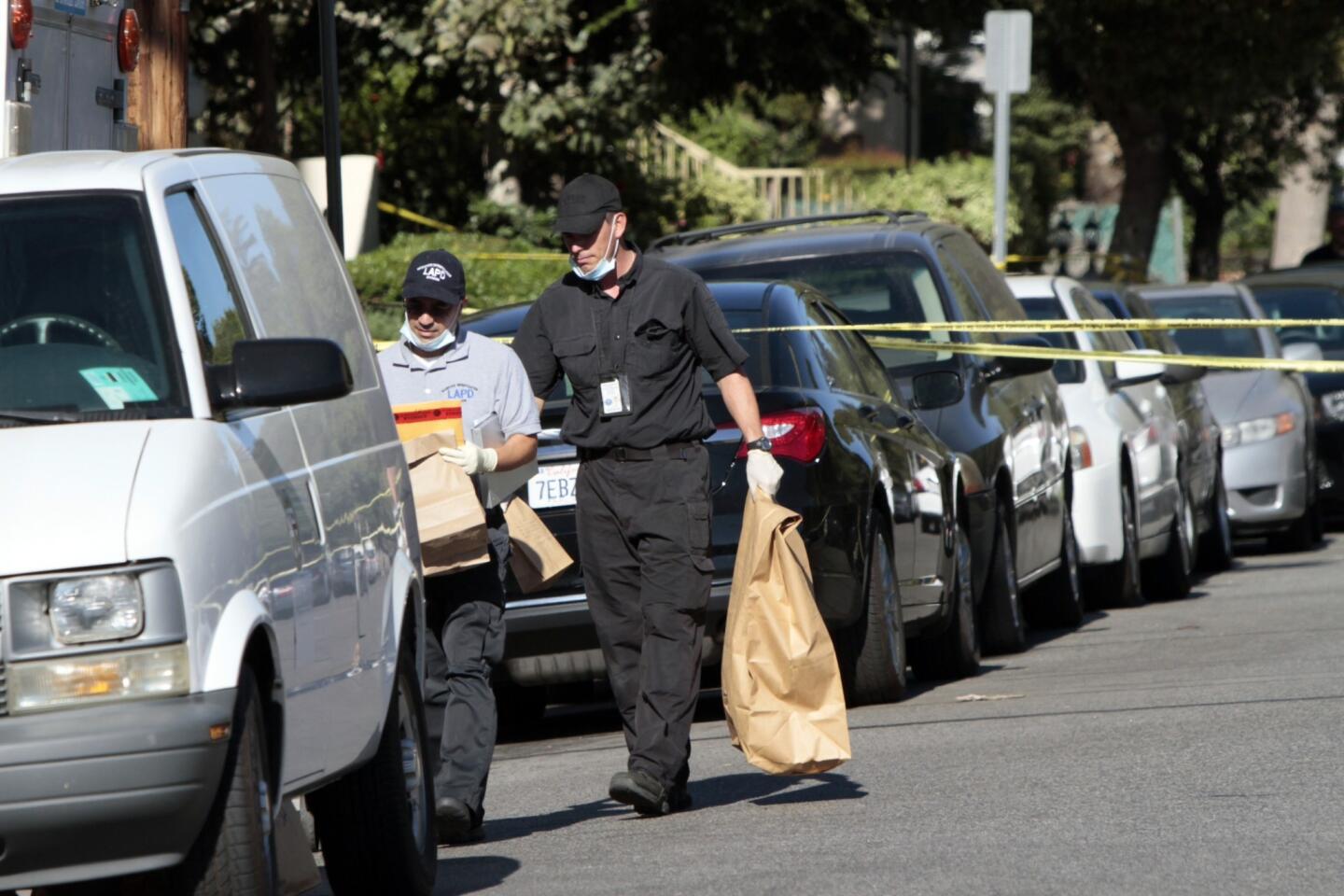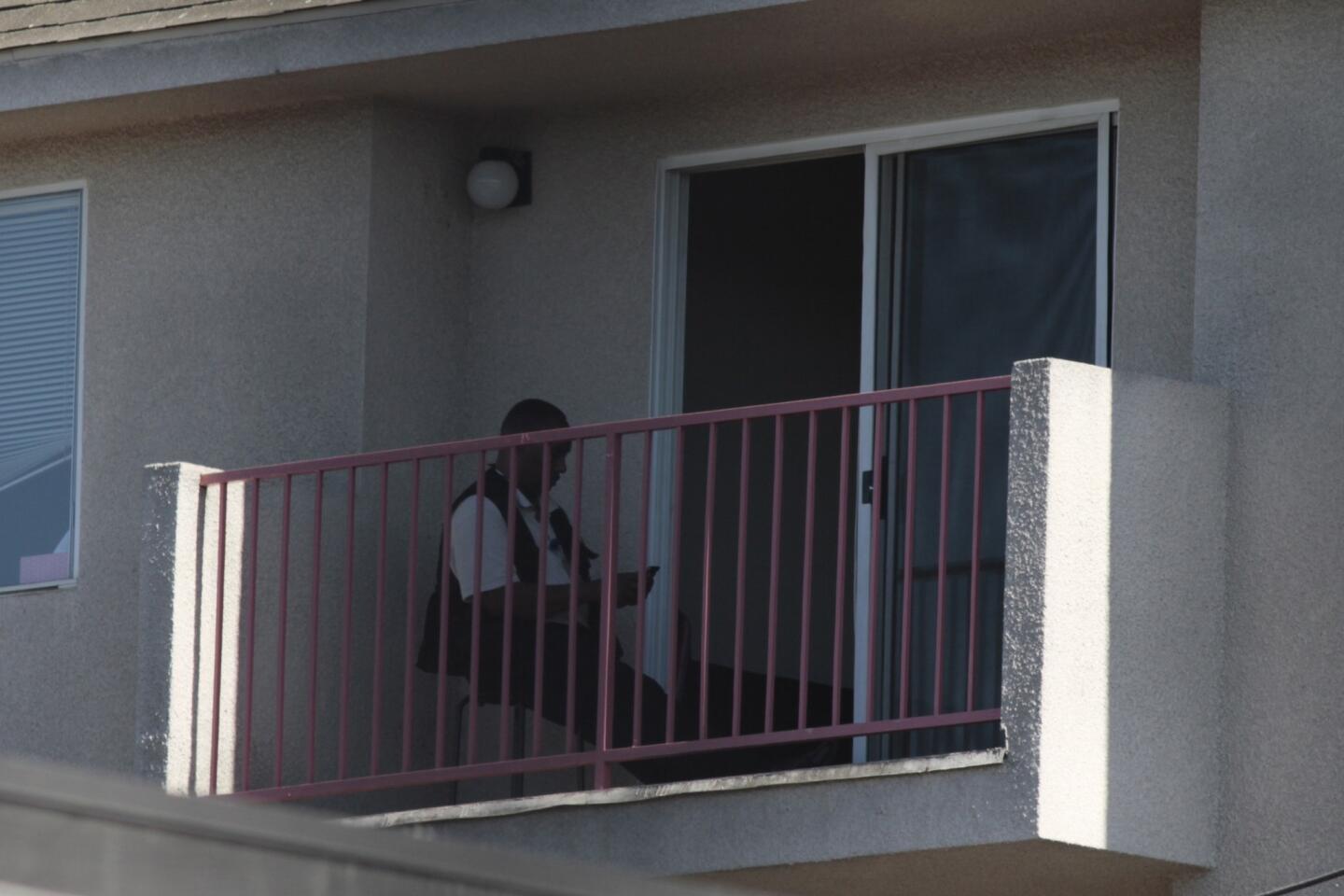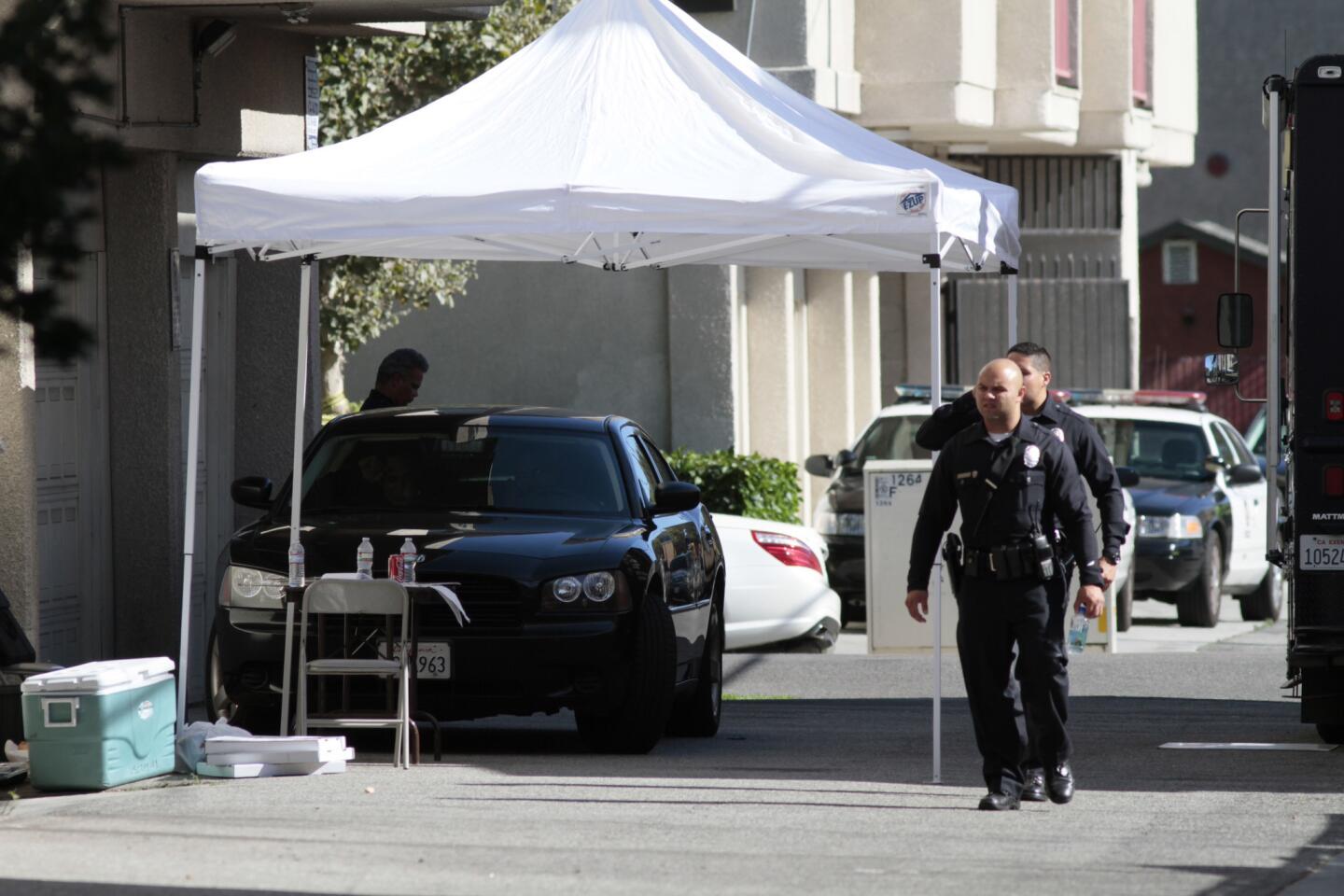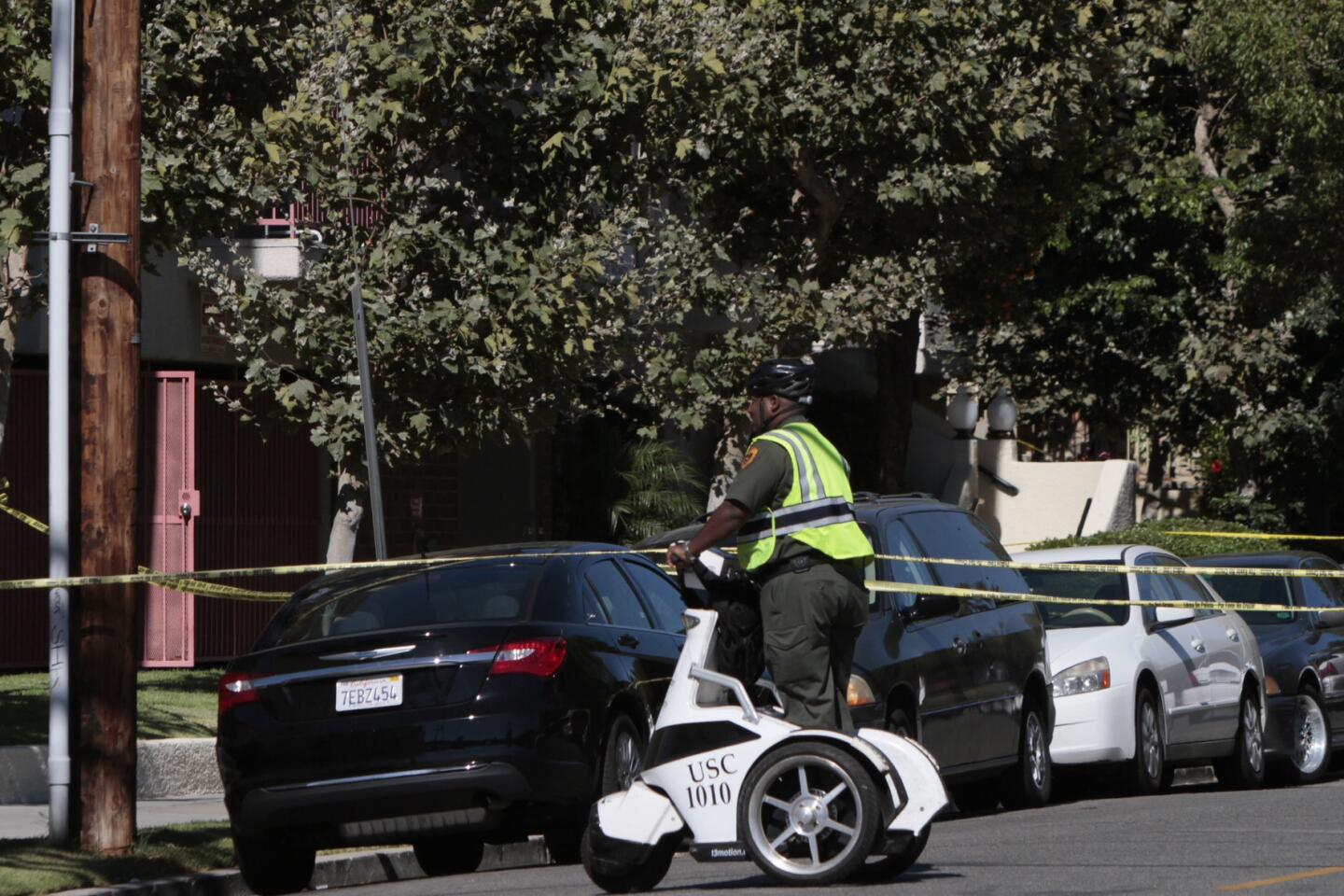After violence, USC tries to soothe anxious parents in China
Reporting from Beijing — In the wake of this summer’s slaying of a Chinese USC graduate student near campus, dozens of Chinese parents who have children at the school packed a hotel conference room in Beijing this week seeking answers about university security as the academic year gets underway.
For USC, which has the most Chinese students of any university in the country, the stakes for its reputation are high. In fall 2013, the school had 3,689 Chinese students.
“USC is not passive in any way about safety and security,” Katharine Harrington, vice president of admissions, told the Beijing gathering on Thursday. In addition to the Beijing briefing, the school held meetings in Shanghai and Hong Kong. David Carlisle, a senior campus public safety official, also attended the meetings.
Xinran Ji, a 24-year old engineering graduate student, was attacked near campus as he walked home from a study group late on July 24. Badly beaten, Ji managed to return to his apartment, where his roommate found his body the next morning.
Four teens have been charged with murder and are being held without bail until their next court hearing Sept. 24; the attack was apparently an attempted robbery. Two are eligible for the death penalty. They have pleaded not guilty.
Ji’s death was the third killing of a Chinese student at USC in two years, after the shooting of engineering students Ying Wu and Ming Qu in 2012.
Harrington opened this week’s meeting by telling the audience that Ji was not attacked because of his ethnicity or because he was a USC student. She detailed how the school is ramping up efforts to keep students safe, beginning with making safety education mandatory for new undergraduate and graduate students.
Among the measures in the works: Dedicated night patrols from both USC and the Los Angeles Police Department will be increased, security camera coverage will be upgraded, and campus cruiser pickup service areas will be expanded with wait times reduced. A free smartphone safety app is in the works. Trees have been trimmed to allow more light and add visibility. The university will also collaborate closely with Chinese student groups to plan safety education.
But the crowd asked the university representatives to do more. A few parents said they were visiting USC at the time of the slaying and did not see any police or security guards on patrol.
Some showed up with their own list of suggestions to improve protection for students. Among the ideas: keeping a cafeteria open later into the night to discourage students from eating off campus. One parent requested that Chinese students be guaranteed four years of on-campus housing as they are “more vulnerable, relatively speaking.”
As the meeting wore on, frustration began to mount as some attendees related incidents such as muggings and the theft of cellphones and bicycles. One woman was angry over how much her son is paying for rent and a parking space, and did not believe the university is paying enough attention to security in return.
“I just don’t believe that the university authorities pay enough attention, seriously enough, with the safety issues,” she said. “I know USC has a very high reputation. I hope that the safety and security can match that high reputation.”
While detailing the university’s response, USC representatives also sought to stress the need for students to take some responsibility for their own safety.
“Living in Los Angeles or any big American city is probably very different than living in China,” Harrington told the Beijing parents. “You can remind your children that safety is a partnership, and the choices they make are important, ” she added, without elaboration.
These sentiments were echoed in an email sent out to parents Monday from USC President C. L. Max Nikias, which emphasized that “we must all take responsibility for our own safety by utilizing the resources available and making smart choices.”
Joyce Chao, director of the USC representative office in Beijing, says that the school is beginning to see a cultural gap with newly arriving Chinese students that may have gone unnoticed before. Beijing and other Chinese cities have low rates of street crime compared with Los Angeles, and self-protective measures that might seem like common sense to Americans may not be evident to Chinese students.
“How do you help them realize there is a vulnerability after dark?” Chao said.
One parent said the main responsibility lies with the university.
“Of course we can do what you suggested – encouragement, or reminders. But there’s a big-time difference, and we’re thousands of miles away,” the mother said. “The main responsibility indeed lies with the campus. You need to relate the knowledge well and provide efficient guidance.”
Despite the enhanced security measures, USC representatives acknowledged that parents across the Pacific may still feel left in the dark. Information on safety resources that is publicly available, Chao said, may not find its way to concerned parents because it goes first to the students.
“In reality, the parents don’t know what’s going on,” Harrington agreed. “The things [the parents] need to know we need to tell parents. We can’t rely on students to tell them.”
In response, USC is building a Chinese-language website and already has an account on WeChat , a mobile service that allows administrators to broadcast news and information to subscribers.
A few incoming students at the Beijing gathering expressed confidence that their collegiate experience would be a safe one.
David Yuan, 18, will attend USC starting in the spring semester and said he’s not afraid. “I think it has nothing to do with the campus,” he said.
Silbert is a special correspondent.
More to Read
Sign up for Essential California
The most important California stories and recommendations in your inbox every morning.
You may occasionally receive promotional content from the Los Angeles Times.
